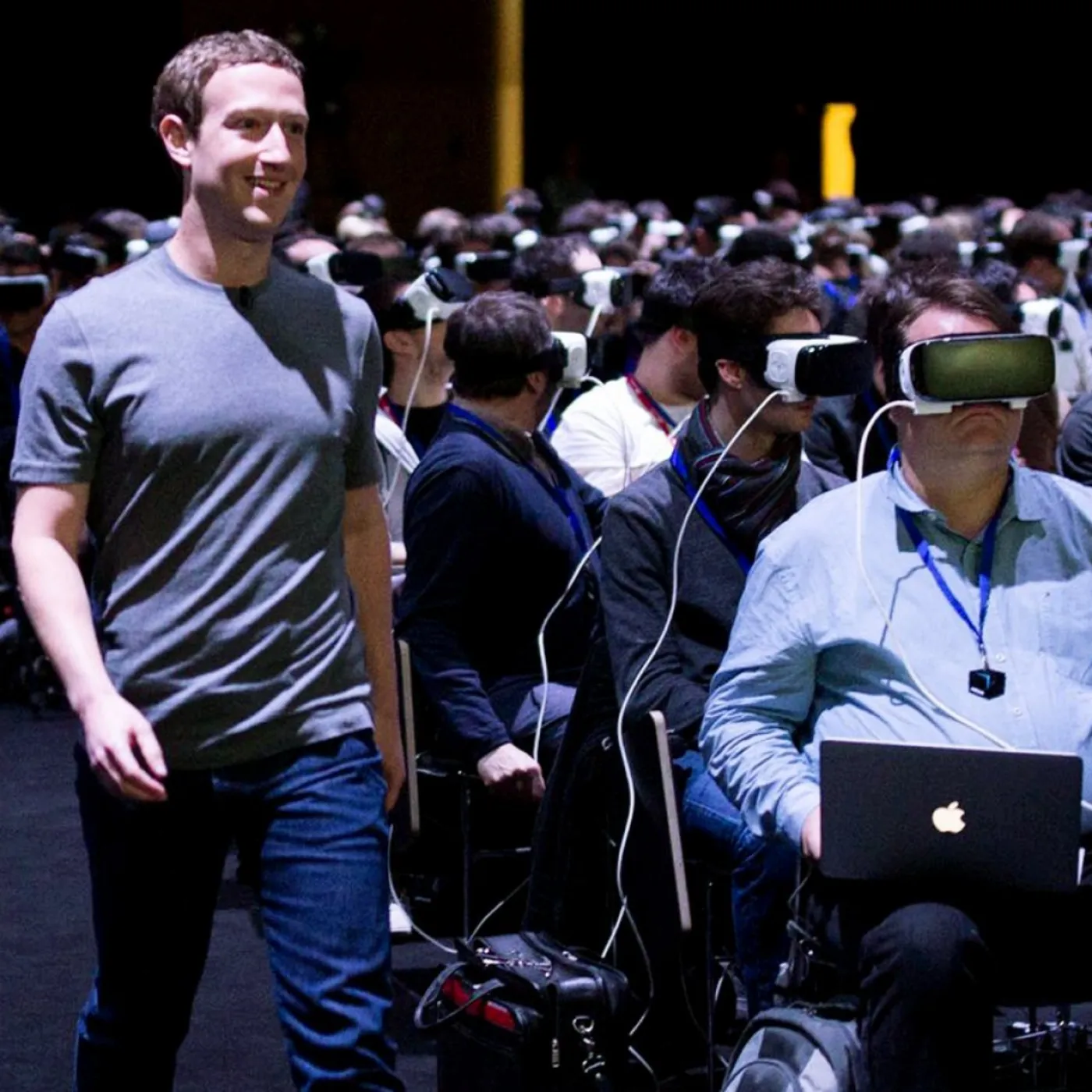

Metaverse: Mark Zuckerberg’s Billion-Dollar Dream or a High-Tech Illusion
Meta has invested billions of dollars into building the metaverse, a fully immersive digital universe where users can interact in 3D environments. Mark Zuckerberg envisions this as the future of the internet, expecting to attract 1 billion users and generate hundreds of billions of dollars in e-commerce transactions daily.
However, this ambitious project has hit major roadblocks. From glitchy graphics to a lack of real engagement, the metaverse is struggling to live up to expectations. Is this the future of technology or just an expensive failure?
What Exactly Is the Metaverse?
The metaverse is a digital world where people can work, play, socialize, and shop using virtual reality (VR) and augmented reality (AR). Imagine attending a concert, hosting a business meeting, or even buying real estate—all inside a virtual 3D space.
Zuckerberg’s vision? A world where VR headsets replace smartphones and people live their digital lives inside Meta’s ecosystem. This is why Facebook rebranded to Meta in 2021—a bold statement that the company was all in on this futuristic bet.
Big tech companies like Microsoft, Google, and Apple are also experimenting with extended reality (XR) technology. However, Meta is the company making the biggest, riskiest bet, committing tens of billions of dollars to a vision that might not even work.
A Multi-Billion Dollar Gamble on Virtual Reality
Meta has spent over $36 billion developing its metaverse infrastructure, including VR headsets, software, and AI-driven avatars. This investment is meant to:
Create fully immersive digital spaces for work and play
Develop realistic avatars with AI-driven facial expressions
Establish a virtual economy where people can buy and sell digital assets
Monetize metaverse experiences through ads, subscriptions, and digital goods
Make virtual reality meetings the norm for businesses and professionals
But despite this massive spending, results have been underwhelming.
For example, Meta’s Horizon Worlds, the company’s flagship metaverse experience, has been a disaster. Early users described it as a low-quality video game filled with glitches, empty rooms, and awkward interactions. Even Meta’s own employees reportedly avoid using it, a devastating sign for a company that has bet its entire future on this vision.
The Harsh Reality: Why Is the Metaverse Failing?
Despite Meta’s relentless push to make the metaverse a reality, the project is struggling due to several major obstacles:
Unfinished and buggy experience: Many users report that Meta’s flagship platform, Horizon Worlds, is slow, awkward, and filled with glitches. The virtual environments lack realism, making it difficult to feel truly immersed.
Lack of mainstream adoption: Most people aren’t interested in wearing VR headsets all day. Unlike smartphones, which fit easily into daily life, VR remains clunky and uncomfortable.

High costs of VR hardware: Meta’s Quest headsets are expensive, making mass adoption difficult. While the company has tried to lower prices, the technology still feels like a luxury, not a necessity.
No real demand—many businesses and users don’t see a practical use for the metaverse beyond gaming. Even virtual meetings, a major selling point, haven’t gained traction because most people prefer video calls over VR interactions.
Competition from other tech giants Apple recently launched its Vision Pro mixed reality headset, which boasts far superior technology compared to Meta’s Quest headsets. If Apple succeeds, it could dominate the XR space, leaving Meta behind.
Even Meta’s own executives have expressed concern about the company’s aggressive push into the metaverse. A major question remains: If even Meta’s team isn’t interested, why should the world be?
Mark Zuckerberg’s Metaverse Crisis: Can It Be Saved?
Facing declining interest and growing skepticism, Meta was forced to pause further metaverse development to focus on fixing issues. The company is now:
Improving VR graphics: aiming for more realistic and engaging experiences with lifelike avatars and smoother environments.
Lowering hardware costs—making VR headsets more affordable for consumers, hoping to drive mass adoption.
Focusing on AI integration—enhancing user interactions with more natural and intelligent virtual assistants.
Expanding beyond entertainment—finding new ways to make the metaverse useful for businesses, education, and remote work.
But will these efforts be enough?
Some investors have lost faith in the metaverse, pressuring Zuckerberg to reduce spending and focus on AI, which is currently more profitable and widely adopted. Meta has already laid off thousands of employees, signaling a shift in priorities.
The Role of AI in Meta’s Future
As the metaverse struggles, Meta is pivoting towards artificial intelligence. The company has invested in large language models (LLMs), AI-powered assistants, and generative AI tools to enhance its platforms. AI is already proving to be a highly profitable sector, with competitors like OpenAI and Google making massive strides.
Meta is developing AI for:

Personalized content recommendations: Making Facebook, Instagram, and WhatsApp more engaging with AI-driven algorithms.
AI-powered customer service: Assisting businesses with automated chatbots that provide human-like responses.
Enhanced AR and VR experiences—using AI to make metaverse interactions smoother and more realistic.
By focusing on AI, Meta hopes to regain investor confidence while keeping the metaverse alive in the background.
The Future of the Metaverse: Will It Succeed or Disappear?
There are two possible futures for Meta’s metaverse:
Scenario 1: A Massive Comeback
With AI-driven improvements, better hardware, and stronger business applications, the metaverse could eventually become a mainstream platform, redefining how we work, socialize, and shop. If Meta can improve the user experience and create real demand, it could still win the race to dominate the digital universe.
Scenario 2: A Billion-Dollar Failure
If user adoption remains low, Meta might have to abandon the metaverse entirely, marking it as one of the biggest tech failures in history. If Apple, Google, or other competitors find a better way to integrate virtual and augmented reality, Meta’s vision might never become a reality.
The Social Impact of the Metaverse: A New Digital Society?
Beyond business and entertainment, the metaverse could reshape social interactions, creating a new way for people to connect, work, and express themselves. Imagine a world where distance no longer matters, where friends, families, and colleagues can meet in fully immersive spaces regardless of location.
However, critics argue that the metaverse could lead to greater social isolation, making people disconnect from reality and live in a digital illusion. If Meta succeeds, will we embrace a new era of human connection, or will society lose itself in a virtual dream?


















